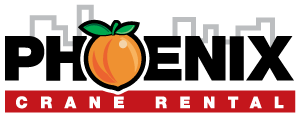ESOP Information
Congratulations on being the first generation of Phoenix Crane’s Employee-Owners! This has been an exciting few years for our company and we will do our best to provide as much information as possible on ESOP’s (Employee Stock Ownership Plans). For starters, the National Center for Employee Ownership website provides a great explanation of how an ESOP works: https://www.nceo.org/articles/esop-employee-stock-ownership-plan. For information specific to our plan, please review the information below for Summary Plan Information.
ESOPs were first authorized by federal legislation in 1974. Since then, there have been more than 25 separate pieces of legislation that have further defined what an ESOP is and what an ESOP is permitted to do. Despite this fact, there are more misconceptions about ESOPs than any other business model that exists in the marketplace.
The following describes some of the more prevalent ESOP misconceptions. Hopefully, these explanations will help dispel many misconceptions that exist regarding these matters.
Myth #1: After establishing an ESOP, the employees have control.
FACT: It is business as usual the day after a company becomes an ESOP. The existing officers of the company (President, VP’s & other management) make decisions just as before, and they answer to the company’s Board of Directors. Phoenix Crane’s Board of Directors are Dick Phillips (Founder), Mike Phillips (President), Karen Barton (VP, CFO), James Johnson (Sales Director), and Mark Loeffler (Independent Board Member).
The board retains the same duties after an ESOP is formed, including appointing officers, approving budgets, accounting to shareholders, and governing corporate policies and objectives. The officers appointed by the board of directors hire management. Management runs the day-to-day operations of the company. These responsibilities are not altered after an ESOP acquires shares. The duties of management and the board are maintained after an ESOP owns shares, and the individuals in management and on the board also usually stay the same.
Fiduciary control of the Phoenix Crane ESOP is maintained by a Trustee. Fiduciary control is the highest standard of legal and ethical care. The Trustee’s responsibility is to protect the financial assets of the company and its retirement benefits. Very few decisions are required to “pass through” to the ESOP participants in a private company. Wise employees recognize that decisions should be made by those individuals most qualified to make them. Establishing an ESOP does not imply moving to a completely democratic business model; company leadership can, and should, remain intact.
Myth #2: ESOPs are more likely to fail than traditional companies.
FACT: ESOP’s almost never fail to repay the loan that most take out to become employee owned (under 0.5% in a study conducted by the National Center for Employee Ownership.) In contrast, similar purchases of companies by private equity firms fail at a rate that is 10 to 20 times higher. ESOPs also have 25 percent higher job growth over a 10-year period. Additionally, employee owners were only 25% as likely to be laid off during the recession as employees without an ownership stake in their companies. However, like any business, ESOP’s can suffer declining performance or even close their doors as a result. This is why your personal accountability for the greater benefit of the company is so important for you as a participant of an ESOP. Generally, ESOPs are more durable and more likely to outperform the competition.
Myth #3: ESOPs are too risky for employees.
One argument against employee stock ownership plans (ESOP) is that they invest primarily in a single asset, company stock, which puts too many eggs in one basket. This does not apply to Phoenix Crane for these three reasons:
- ESOPs don’t pose a financial risk to employees; they are fully funded by the company. As an employee of an ESOP, you have no contribution to lose. You gain the benefits as the company grows.
- Phoenix Crane has a 401(k) plan in addition to the ESOP. As a result, employees at Phoenix Crane have 2.5 times more in their retirement accounts on average than employees at non-ESOP companies.
- ESOPs provide for some diversification. Participants approaching retirement age (and meeting tenure requirements) must be given the option to diversify a percentage of stock held in their accounts, and ESOPs often have assets besides employer stock in the plan.
Myth #4: The Phoenix Crane ESOP can be sold to a third-party without my knowledge.
FACT: As an employee of Phoenix Crane and an ESOP participant, you have certain voting rights. You (or your Beneficiary after your death) are entitled to direct the Trustee how to vote shares of Company Stock allocated to your Account with respect to any substantial corporate matter. A substantial corporate matter is a major corporate transaction such as a corporate merger, consolidation, recapitalization, reclassification, liquidation, dissolution, sale of substantially all the Company’s assets of a trade or business or a similar transaction. The Company will provide you with the appropriate notices and information concerning your voting rights within a reasonable period of time before your rights are to be exercised. To the extent that you do not have these rights, the Trustee will vote all shares of Company Stock.
Note: Please see p. 12 of the Summary Plan Description for the Phoenix Crane Service, Inc. Employee Stock Ownership Plan (link) Effective January 1, 2015
